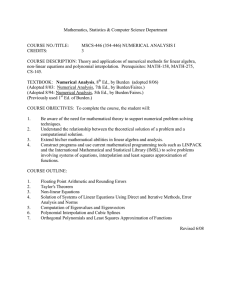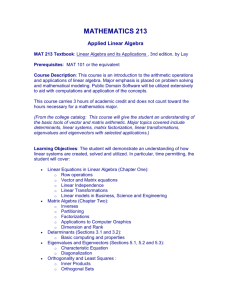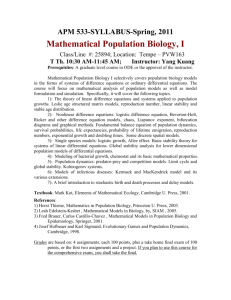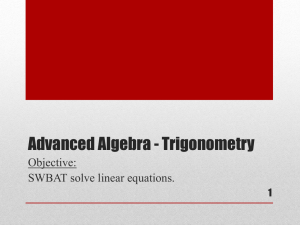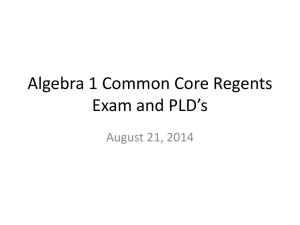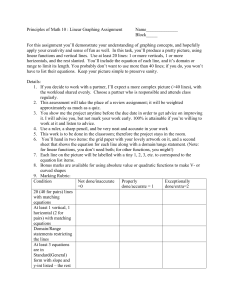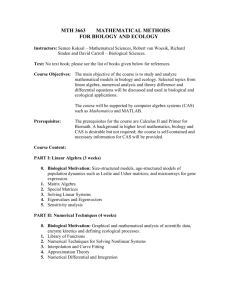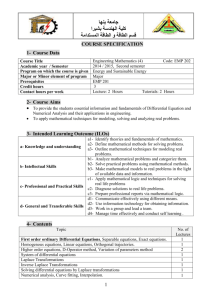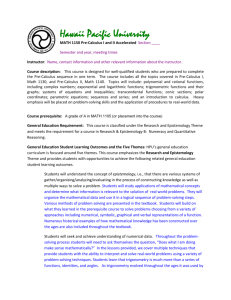MAT 381 - Mississippi College
advertisement
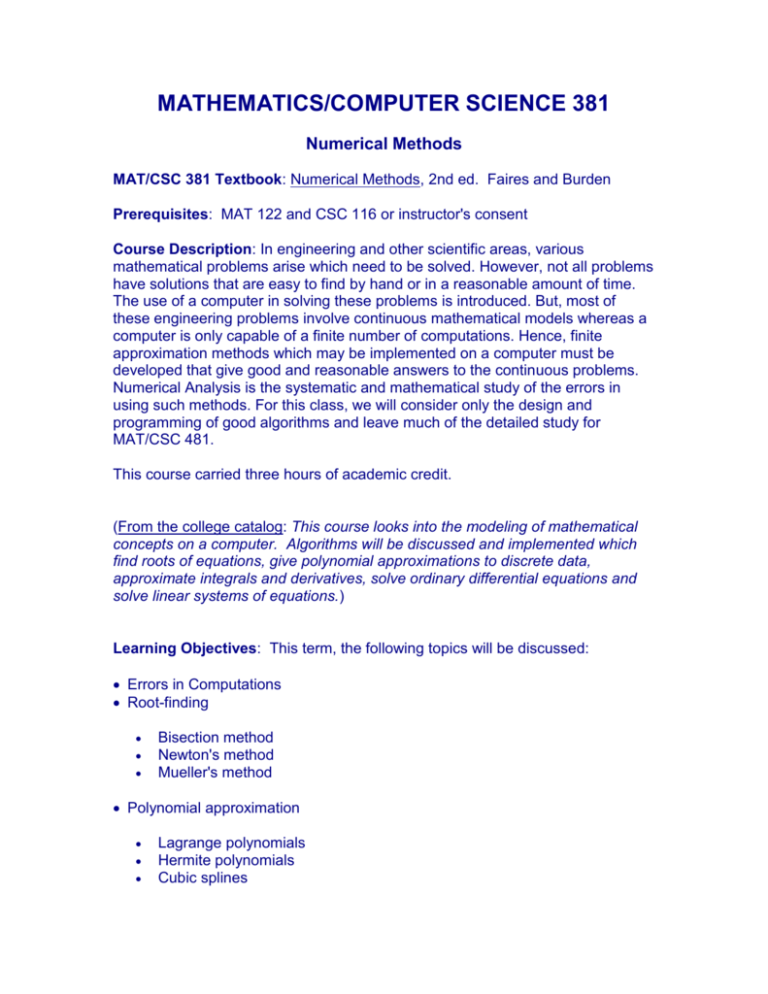
MATHEMATICS/COMPUTER SCIENCE 381 Numerical Methods MAT/CSC 381 Textbook: Numerical Methods, 2nd ed. Faires and Burden Prerequisites: MAT 122 and CSC 116 or instructor's consent Course Description: In engineering and other scientific areas, various mathematical problems arise which need to be solved. However, not all problems have solutions that are easy to find by hand or in a reasonable amount of time. The use of a computer in solving these problems is introduced. But, most of these engineering problems involve continuous mathematical models whereas a computer is only capable of a finite number of computations. Hence, finite approximation methods which may be implemented on a computer must be developed that give good and reasonable answers to the continuous problems. Numerical Analysis is the systematic and mathematical study of the errors in using such methods. For this class, we will consider only the design and programming of good algorithms and leave much of the detailed study for MAT/CSC 481. This course carried three hours of academic credit. (From the college catalog: This course looks into the modeling of mathematical concepts on a computer. Algorithms will be discussed and implemented which find roots of equations, give polynomial approximations to discrete data, approximate integrals and derivatives, solve ordinary differential equations and solve linear systems of equations.) Learning Objectives: This term, the following topics will be discussed: Errors in Computations Root-finding Bisection method Newton's method Mueller's method Polynomial approximation Lagrange polynomials Hermite polynomials Cubic splines Bezier curves Surfaces Integration and Differentiation Trapezoidal Rule Simpson's rule Gaussian Quadrature Difference Rules Solving Differential Equations Euler's method Tailors methods Runge-Kutta methods Systems of Equations Gaussian Elimination Matrix Factorizations Jacobi method Gauss-Seidel method Meetings: The format of class meetings will alternate between lectures by the instructor and group discussion sessions, often around a computer. Student participation will be encouraged via these classroom discussions as well as problem sessions where the student might present their work. This class meets as scheduled. You are expected to be in class on time. University policy states that a student cannot miss more than 25% of class meetings and receive credit for the course. Further, attendance will be necessary in order to understand the material and make a good grade. The student is responsible for work and material missed when absent. Cheating in any way will be properly rewarded according to University policy (Tomahawk; Undergrad. Bulletin, pp. 46; http://www.mc.edu/publications/policies/219.html). MISSISSIPPI COLLEGE ACADEMIC POLICIES: Students should consult the Mississippi College policy manual located at http://www.mc.edu/resources/publications/policies/ for official information regarding: Class attendance - Policy 2.10 Grading - Policy 2.15 Cheating - Policy 2.19 Counseling and Career Services - Policy 2.25 Research - Policy 2.27 Counseling and Testing Center - Policy 2.34 Students who may require accomodation due to a documented handicap should follow the procedures located at http://www.mc.edu/about/offices/counseling/disabilities/ The Generic Grading Scale for this course is A = 90-100, B = 80-89, C = 70-79, D = 60-69. Individual instructors are free to choose a different grading scheme so students should consult their section's particular syllabus for the official grading scale to be utilized. Tutoring Hours: Hours and location for the departmental tutoring center are posted at http://www.mc.edu/academics/academic-tutoring/ .
